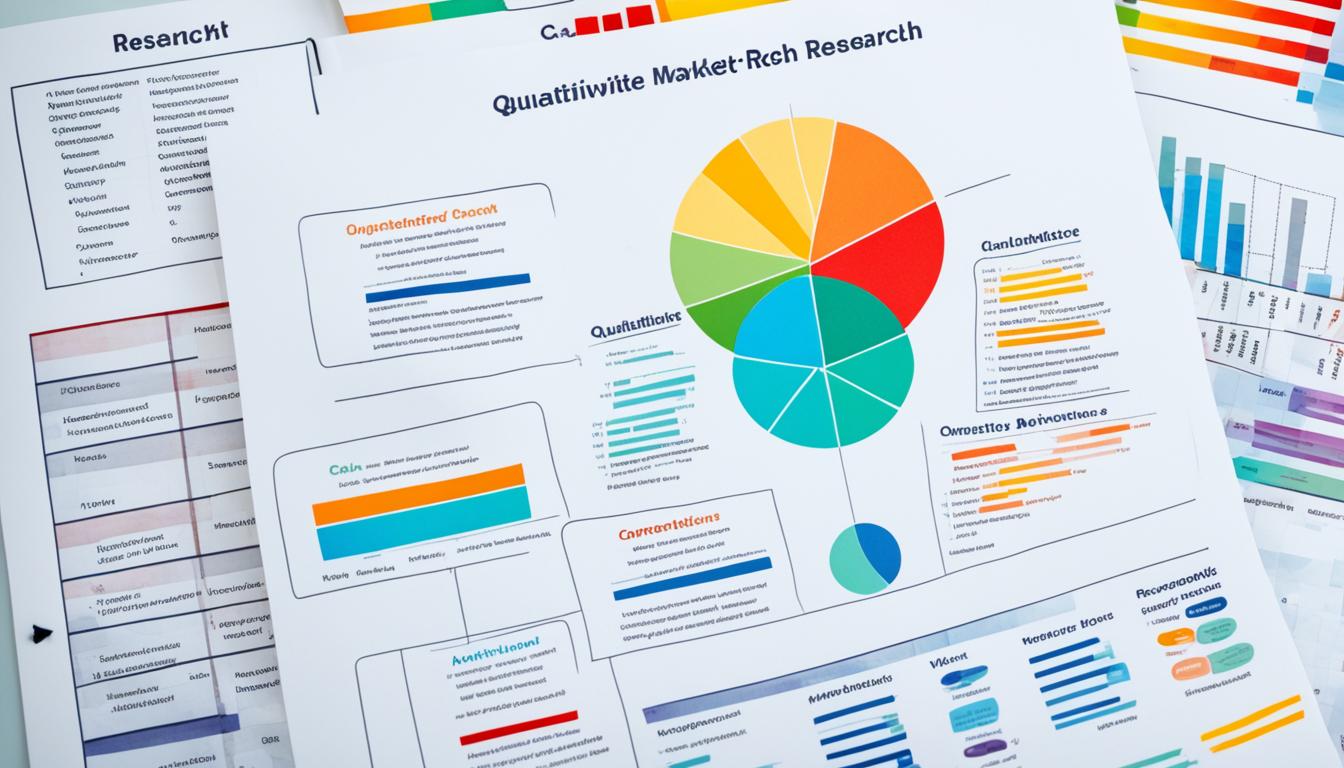Wholesale marketing is a crucial aspect of growing a successful wholesale business. Understanding the definition, strategies, benefits, examples, tactics, trends, and the distinction between wholesale marketing and retail marketing is essential for wholesalers seeking to expand their customer base and profitability.
At its core, wholesale marketing involves developing a comprehensive plan that caters to the needs of wholesale customers. It requires strong industry knowledge and a focus on building relationships with retail networks.
Successful wholesale marketing involves leveraging warehouse inventory management software, building a strong retail network, offering buying incentives, positioning the business where customers are, rigorously examining marketing spend, and taking advantage of competitors’ weaknesses. These strategies can help wholesalers achieve their goals, whether it’s cross-selling, reaching new customers, or establishing a brand presence in a competitive market.
Wholesale marketing trends are constantly evolving as the industry adapts to changing market dynamics and customer preferences. Being aware of these trends and incorporating them into marketing strategies can give wholesalers a competitive edge.
It is also important to differentiate wholesale marketing from retail marketing. While both aim to increase customer base and profitability, wholesale marketing focuses on building relationships with retailers and targeting other businesses, while retail marketing focuses on engaging with end consumers.
By understanding the intricacies of wholesale marketing, wholesalers can position themselves for success in the B2B sector and maximize their business’s potential to thrive.
Key Takeaways:
- Wholesale marketing is essential for increasing customer base and profitability in the wholesale business.
- It involves understanding the needs of wholesale customers and developing strategies accordingly.
- Successful wholesale marketing involves leveraging technology, building strong retail networks, and analyzing competitors.
- Wholesale marketing is distinct from retail marketing and focuses on targeting other businesses.
- Keeping up with wholesale marketing trends is vital for staying competitive in the industry.
What is Wholesale?
Wholesale is a business model that involves the sale of products in bulk to other businesses. In this model, wholesale companies may sell products for internal consumption or production, or they may sell to other businesses in smaller quantities at higher prices.
The wholesale business model is a subset of the B2B (Business-to-Business) business model, focusing on transactions between wholesalers and retailers or other businesses. Wholesale distributors play a crucial role in this model, aiming to build extensive retail networks and sell large volumes of products to reach a wide customer base.
Wholesale businesses, on the other hand, primarily focus on selling products to retailers while maintaining a competitive advantage in the market. They strive to meet the specific needs and demands of retailers by offering favorable pricing, prompt delivery, and exceptional customer service.
Wholesale marketing strategies vary depending on the business model and target customers. For wholesale distributors, strategies revolve around building strong relationships with retail networks, expanding product offerings, and implementing effective marketing and promotional campaigns. Wholesale businesses, on the other hand, emphasize strategies to attract retailers, enhance product visibility, and differentiate themselves from competitors. This may include showcasing catalogues, offering exclusive deals, or leveraging digital platforms for effective marketing and sales.
Wholesale Business Model
In the wholesale business model, the focus is on bulk sales to retailers or other businesses. Wholesalers purchase goods in large quantities from manufacturers or suppliers and sell them at discounted prices to retailers, who then sell the products to end consumers. This intermediation enables wholesalers to offer competitive prices while ensuring a steady supply of goods to retailers.
Key participants in the wholesale business model include:
- Wholesalers: These are the entities that purchase goods in bulk and sell them to retailers or other businesses. They serve as a link between manufacturers and retailers, providing essential distribution and logistics services.
- Manufacturers or Suppliers: They produce or supply the goods that wholesalers purchase and distribute. Manufacturers or suppliers may sell products to wholesalers directly or through established distribution channels.
- Retailers: These businesses purchase products from wholesalers and sell them directly to end consumers through physical stores or online platforms.
In summary, the wholesale business model operates on the principle of bulk sales, enabling wholesalers to reach a broader market and provide retailers with a wide range of products to meet consumer demand.
Wholesale Distributors
Wholesale distributors are key players in the wholesale industry, connecting manufacturers and suppliers with retailers. Their primary objective is to build strong networks of retail partners and efficiently distribute products to meet market demands.
Wholesale distributors offer several benefits to manufacturers, including:
- Market Reach: Distributors have existing relationships with retailers, allowing manufacturers to expand their market reach without direct involvement.
- Efficient Distribution: Distributors handle warehousing, inventory management, and order fulfillment, ensuring timely delivery of products to retailers.
- Sales Expertise: Distributors have in-depth knowledge of the market and consumer preferences, enabling manufacturers to gain valuable insights and adapt their products accordingly.
For retailers, wholesale distributors provide:
- Convenience: Distributors offer a wide range of products from multiple manufacturers in one place, making it easier for retailers to source goods.
- Cost Savings: Wholesale prices offered by distributors allow retailers to purchase products at lower prices, improving their profit margins.
- Reliable Supply: Distributors provide a consistent supply of products, ensuring retailers can meet customer demand and avoid stockouts.
Overall, wholesale distributors play a crucial role in facilitating the flow of goods between manufacturers and retailers, enabling both parties to benefit from increased market reach, efficiency, and profitability.
What Is Digital Wholesale?
Digital wholesale refers to the process of conducting wholesale business online through B2B wholesale e-commerce platforms. It revolutionizes the traditional wholesale model by allowing wholesalers to sell bulk goods and services to other businesses entirely online. This digital approach offers numerous benefits, including convenience, efficiency, and increased visibility for both wholesalers and retailers.
A crucial component of digital wholesale is the digital wholesale platform, which serves as an online shop and marketplace for businesses to buy and sell products. These platforms provide a seamless and user-friendly interface, making it easier for wholesalers and retailers to connect and conduct transactions.
Benefits of Digital Wholesale
The adoption of digital wholesale brings several advantages to wholesalers and retailers alike:
- Increased sales: Digital wholesale expands market reach by connecting wholesalers with a broader customer base. It enables businesses to target new markets, attract more customers, and ultimately increase sales.
- Streamlined supply chain management: Digital platforms provide efficient inventory management tools and automated order processing systems. This streamlines the supply chain, reduces manual errors, and ensures timely order fulfillment.
- Improved brand visibility: By leveraging digital channels, wholesalers can enhance their brand visibility and reach a larger audience. Digital wholesale platforms often offer marketing features that enable wholesalers to showcase their products and build brand awareness.
- Expanded market reach: With digital wholesale, geographical barriers are no longer a limitation. Wholesalers can easily connect with retailers from different regions, allowing for global expansion and increased market reach.
- Data-driven decision-making: Digital wholesale platforms provide valuable data analytics and insights. Wholesalers can access crucial information about customer preferences, market trends, and sales performance. This data empowers wholesalers to make informed business decisions and optimize their strategies.
Overall, digital wholesale offers a modern and efficient approach to conducting B2B transactions. Platforms like Turis provide the necessary tools and features that facilitate seamless digital wholesale transactions, helping businesses thrive in the competitive wholesale industry.
What Are the Benefits of Digital Wholesale?
Digital wholesale offers numerous benefits that can revolutionize the wholesale industry. With the increased adoption of e-commerce, wholesalers can leverage digital platforms to enhance their operations and maximize their business potential. Let’s explore the key advantages of digital wholesale:
Increased Sales and Market Reach
By embracing digital wholesale, wholesalers can tap into a wider customer base and expand their market reach significantly. With e-commerce platforms, wholesalers can showcase their products to a global audience, attracting buyers from various locations. The availability of digital channels enables wholesalers to make their products easily accessible, leading to increased sales opportunities.
Improved Brand Visibility
Digital wholesale allows wholesalers to enhance their brand visibility and establish a strong presence in the market. By leveraging professional and user-friendly digital platforms, wholesalers can create a memorable brand experience for customers. This, in turn, boosts brand recognition and loyalty among retailers and end consumers.
Streamlined Supply Chain Management
One of the key advantages of digital wholesale is the ability to have complete control over the supply chain. Wholesalers can efficiently manage their inventory, monitor stock levels, and track orders in real time. This level of control ensures smooth operations, reduces errors, and improves overall customer satisfaction.
Efficient Sales Channels
Digital wholesale platforms offer streamlined and efficient sales channels for wholesalers and retailers. Wholesalers can easily manage product catalogs, update pricing, and offer seamless online ordering and payment options. Retailers, on the other hand, benefit from convenient order placement, order tracking, and easy payment processes.
Data-Driven Decision-Making
With digital wholesale, wholesalers have access to valuable data analytics that can drive informed decision-making. Data insights enable wholesalers to identify trends, understand customer preferences, and optimize their marketing and sales strategies. By leveraging data, wholesalers can make strategic business decisions that lead to increased profitability and growth.
These benefits collectively demonstrate the transformative effect of digital wholesale on the wholesale industry. By embracing digital platforms and technologies, wholesalers can unlock new opportunities, scale their operations, and stay ahead of the competition.
How do I find wholesale suppliers and retailers?
Finding wholesale suppliers and retailers is a fundamental aspect of running a successful wholesale business. There are various methods and platforms available to connect wholesalers with potential buyers. One such avenue is through wholesale marketplaces or B2B e-commerce platforms like Alibaba and Turis. These platforms provide a wide range of options, making it easier to find reputable suppliers and retailers. They also offer features that streamline communication and facilitate smooth transaction processes.
In addition to wholesale marketplaces, attending trade shows is an excellent way to connect with suppliers and retailers. Trade shows offer a valuable opportunity to network with industry professionals, explore new business prospects, and showcase your products to interested buyers. Many industry events also include seminars and educational sessions that can provide useful insights into the latest trends and developments in the wholesale industry.
Another effective method for finding wholesale suppliers and retailers is through networking. Engage in active networking within your industry by attending industry-specific events, joining professional organizations, and participating in online communities. Building strong relationships with suppliers and retailers is crucial for long-term success in the wholesale industry, as it fosters trust, reliability, and collaboration.
Lastly, conducting online research can yield valuable results. Utilize search engines and online directories specifically geared towards wholesalers. These platforms can help you discover potential suppliers and retailers, allowing you to gather information, evaluate their offerings, and potentially establish partnerships.
Benefits of Finding Wholesale Suppliers and Retailers:
- Access to a wide range of products
- Potential cost savings through bulk purchases
- Establishment of long-term partnerships
- Expanded market reach
- Opportunity for cross-selling and upselling
- Increased product variety for customers
By utilizing a combination of wholesale marketplaces, trade shows, networking, and online research, wholesalers can effectively find reliable and reputable suppliers and retailers. This, in turn, allows them to offer a diverse range of products, expand their market reach, and establish long-term partnerships that contribute to the growth and success of their wholesale business.
How do I get my product in stores?
Getting products in stores is a crucial step for wholesalers to expand their reach and increase sales. It requires establishing partnerships with retailers and implementing effective wholesale distribution strategies. By understanding retailers’ needs, market demand, and the competitive landscape, wholesalers can successfully get their products on store shelves.
Here are some key steps to consider:
1. Approach Retailers Directly
Wholesalers can reach out to potential retailers directly, presenting their products and negotiating distribution contracts. Building a personal connection with retailers can help establish trust and a mutually beneficial partnership.
2. Understand Retail Distribution Channels
Gaining insight into the retail distribution channels specific to your industry is essential. Understanding how products move from wholesalers to retailers and eventually to consumers will help wholesalers navigate the process more effectively.
3. Develop Strong Relationships with Retailers
Building strong relationships with retailers is crucial for successful store placements. By understanding their requirements, preferences, and target market, wholesalers can tailor their products and offerings to meet retailers’ needs.
4. Implement Wholesale Distribution Strategies
Wholesale distribution strategies play a vital role in getting products in stores. This includes determining the most suitable distribution channels, optimizing logistics and inventory management, and ensuring timely and efficient order fulfillment.
5. Maintain Excellent Product Presentation and Packaging
Investing in high-quality product presentation and packaging helps create a positive impression with retailers. Well-presented products are more likely to catch the attention of retailers and convince them to stock them in their stores.
6. Consider Partnerships with Retailers
Forming strategic partnerships with retailers can provide significant benefits. Collaborating with retailers on exclusive product launches, dedicated displays, or joint marketing campaigns can help increase brand visibility and drive sales.
Remember, successful retail placements require continuous effort and adaptation to market dynamics. By implementing effective wholesale distribution strategies and building strong relationships with retailers, wholesalers can increase their chances of getting their products in stores and reaching a wider customer base.
Wholesale Trade Shows – That’s How You Get Ahead of the Competition
Attending wholesale trade shows and industry events is a strategic move for wholesalers looking to stay ahead of the competition. These events offer valuable networking opportunities and a platform to showcase products to potential buyers.
By participating in trade shows, wholesalers can connect with retailers and other industry professionals, establish and nurture relationships, and gain insights into the latest market trends. It’s a chance to engage with key players in the industry and stay updated on emerging opportunities.
Wholesale trade shows provide a unique opportunity for wholesalers to build brand awareness. The ability to showcase products in person allows for a more immersive and tangible experience, making a lasting impression on potential buyers.
Furthermore, trade shows serve as a catalyst for generating leads and establishing partnerships. The face-to-face interaction creates a conducive environment for building trust and forming strategic alliances with retailers and industry influencers.
Industry events and trade shows go beyond just sales and transactions. They provide a platform to learn from thought leaders and industry experts through educational seminars, workshops, and panel discussions. Wholesalers can gain valuable insights into market dynamics, consumer preferences, and the strategies adopted by their competitors.
Attending wholesale trade shows translates into a multitude of benefits, from networking opportunities and showcasing products to gaining a competitive edge. It’s an investment that can yield substantial returns in terms of building brand equity, expanding market reach, and fostering growth.
| Benefits of Wholesale Trade Shows |
|---|
| Networking opportunities |
| Showcasing products to potential buyers |
| Staying updated on market trends |
| Building brand awareness |
| Generating leads and establishing partnerships |
Be Cautious of Wholesale Marketplaces
Wholesale marketplaces can be a convenient way to find suppliers and retailers for your wholesale business. However, it is important for wholesalers to exercise caution when using these platforms due to potential risks associated with them.
One of the common risks of using wholesale marketplaces is the lack of quality control. Since these platforms cater to a wide range of suppliers, there is a possibility of dealing with low-quality products or substandard suppliers. This can negatively impact your business’s reputation and customer satisfaction.
Another risk is the increased price competition on wholesale marketplaces. Since multiple sellers offer similar products, there is often a race to the bottom in terms of pricing. This can lead to reduced profit margins and difficulties in maintaining a competitive edge.
Counterfeit products are also a concern when using wholesale marketplaces. With the absence of strict verification measures, it becomes easier for counterfeiters to operate on these platforms, posing a threat to genuine wholesalers and their customers.
To mitigate these risks, it is crucial for wholesalers to conduct thorough research and due diligence before partnering with suppliers on wholesale marketplaces. Take the time to vet potential partners, read reviews, and assess their product quality and credibility. Additionally, consider requesting samples or certifications to ensure their legitimacy.
Implementing a robust quality control process within your own business is also essential. This can involve regular product inspections, testing, and supplier audits. By prioritizing quality control, you can minimize the risks associated with wholesale marketplaces and maintain the reputation and integrity of your business.
Benefits of Quality Control
Implementing a strong quality control process allows wholesalers to:
- Ensure product consistency and customer satisfaction
- Minimize returns, refunds, and customer complaints
- Build a reliable and trusted brand
- Establish long-term relationships with retailers
| Risks of Using Wholesale Marketplaces | Preventive Measures |
|---|---|
| Lack of quality control | Thorough research and vetting of potential partners, requesting product samples or certifications |
| Increased price competition | Focus on value-added services, differentiation, and providing unique offerings |
| Presence of counterfeit products | Strict verification measures, supplier audits, and regular product inspections |
Marketing Strategy for Wholesale Business
Developing an effective marketing strategy is crucial for the success of a wholesale business. By implementing the right tactics, wholesalers can establish a strong brand presence, attract new customers, and increase sales. Here are some key marketing strategies to consider:
Create a Memorable Brand Experience
In the competitive wholesale market, it’s vital to stand out and leave a lasting impression on customers. Building a memorable brand experience helps establish trust and loyalty, ensuring that wholesalers stay at the forefront of customers’ minds.
Utilize Email Marketing to Reach and Engage Customers
Email marketing is a valuable tool for wholesalers to maintain regular communication with customers. By leveraging email campaigns, wholesalers can share product updates, special offers, and relevant industry information, ensuring consistent engagement and nurturing customer relationships.
Be Unique and Stand Out in the Market
In a crowded market, wholesalers need to differentiate themselves from competitors. Whether it’s through innovative product offerings, exceptional customer service, or unique value propositions, being distinctive and offering something different can attract new customers and strengthen existing relationships.
Master the Advertising Approach
An effective advertising approach is essential to reach the target audience effectively. By understanding customer demographics, preferences, and pain points, wholesalers can craft compelling advertising messages tailored to their customers’ needs. This way, wholesalers can increase brand visibility and generate targeted leads.
Cross-Selling: Target B2B and DTC Markets
Wholesalers can expand their customer base and revenue streams by implementing a cross-selling strategy. By targeting both B2B and direct-to-consumer (DTC) markets, wholesalers can maximize their sales potential and cater to a wide range of customer preferences.
Leverage Digital Platforms
With the rise of e-commerce, wholesalers must adapt and leverage digital platforms to stay competitive. Utilizing B2B e-commerce platforms, social media, and online marketplaces can broaden wholesalers’ reach, facilitate transactions, and drive brand awareness.
By implementing a comprehensive marketing strategy that incorporates these tactics, wholesalers can elevate their business and gain a competitive edge in the wholesale market.
| Marketing Strategies for Wholesale Business | Benefits |
|---|---|
| Creative brand experience | Builds brand loyalty and trust |
| Email marketing | Engages customers and nurtures relationships |
| Distinctiveness | Attracts new customers and strengthens existing ones |
| Effective advertising approach | Increases brand visibility and generates leads |
| Cross-selling | Expands customer base and revenue streams |
| Leveraging digital platforms | Broadens reach and facilitates transactions |
Conclusion
Wholesale marketing plays a crucial role in the success of a wholesale business. By understanding the needs of wholesale customers and implementing effective marketing strategies, wholesalers can maximize their business’s potential in the B2B sector. One key takeaway is the importance of building strong relationships with suppliers and retailers. These partnerships not only ensure a steady supply of products but also help wholesalers stay updated on market trends and gain insights into the competition.
In today’s digital age, it is essential for wholesalers to leverage digital platforms and technologies to improve efficiency and expand their market reach. Utilizing online platforms and embracing digital wholesale allows wholesalers to streamline their supply chain management, improve brand visibility, and access valuable data analytics for better decision-making.
Constantly adapting to market trends and customer preferences is another key takeaway from this article. Wholesalers must stay agile and responsive to changing market dynamics, bringing innovative products, and offering exceptional customer experiences to stand out and stay ahead of the competition.
In conclusion, a comprehensive wholesale marketing plan is vital for wholesalers who aim to thrive in the B2B sector. By building strong relationships, leveraging digital platforms, and staying adaptable, wholesalers can position themselves for long-term success, maximize their business’s potential, and meet the changing demands of wholesale customers.



